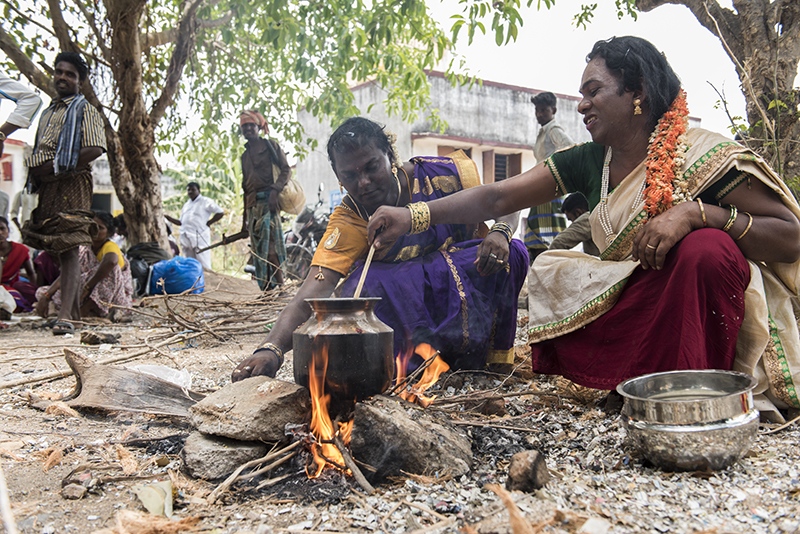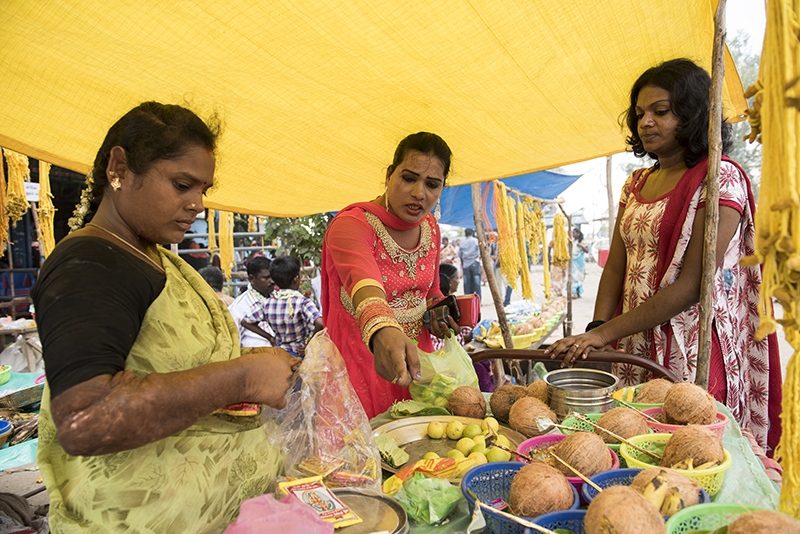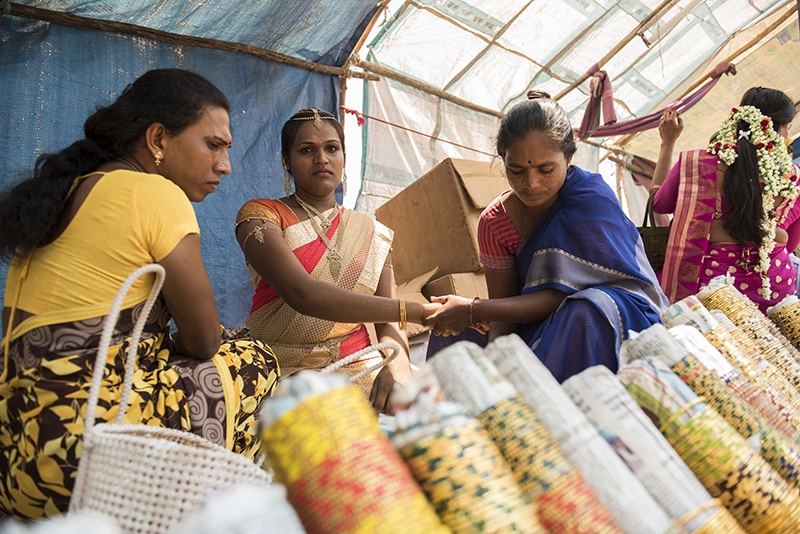Transgender people marry mythical Lord Aravan for a day and become a widow the next day.Villupuram India: The village of Koovagam is next to Ulundurpet taluk in Villupuram district. The Koothandavar temple is situated in this village. Transgender from across India gather in Villupuram to re-enacted a story adopted from the Indian epic fable Mahabharata, celebrated in the grand style documented in the year 2016. next year festival, which falls on 19 April 2019 but keeps watching here for an update.
The fable of Mahabharata:The God, 'Aravaan,' or Iravan in Mahabharata, was born to Arjuna and Naga Princess Ulupi. The Pandavas decided to sacrifice a human to ensure victory in the war. Iravan volunteered for the sacrifice, and in return, was granted a dying wish. Before offering himself for sacrifice, Iravan wished to enjoy a woman's pleasures and die as a married man. Lord Krishna appeared as a female in Mohini's form and married him, and the next day, Aravan was beheaded. Mohini cried, lamented, wailed, and bereaved for him like no wife would do for her husband.
Festival :The 'Aravaani's of Aravaan' identify themselves with 'Mohini' — the female form of Krishna as a woman trapped inside a man's body. In this festival, the priest who is considered as 'Aravaan' ties the 'thaali' or 'mangalsutra' to the Aravaanis and binds them in the relationship of marriage. The next day, 'thali arutthal' or the rituals for widowhood are followed, including snapping of the thaali and breaking of the bangles to signify the death of Iravan. The 'Aravaani's' wear white saree and lament over the death of Aravaan. This is done on the last day of the 18-day festival. The entire place is filled with the loud wails of the transwomen, and their appearance is in direct contrast to the previous day, where they decorated in attire.



















